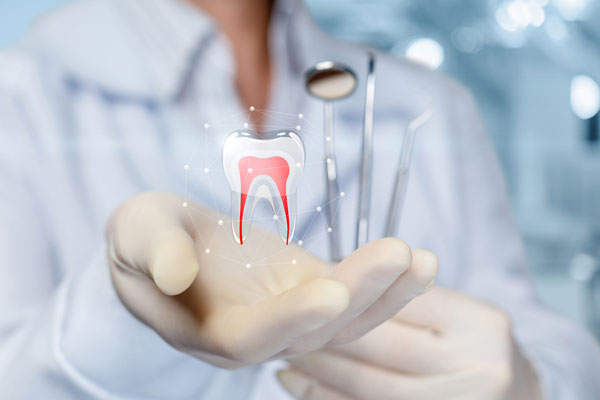 Dental restorations offer ways to remove damaged tooth enamel, halt further decay, and restore the function of damaged or lost teeth. However, some mistaken beliefs prevent people from getting necessary care for oral health. Understand how to separate fact from fiction to make better choices for your dental care.
Dental restorations offer ways to remove damaged tooth enamel, halt further decay, and restore the function of damaged or lost teeth. However, some mistaken beliefs prevent people from getting necessary care for oral health. Understand how to separate fact from fiction to make better choices for your dental care.
Common misapprehensions about dental restorations
Learn the truth behind the following four myths about these procedures.
1. Brushing and flossing will fix a cavity.
Some people erroneously believe that brushing and flossing their teeth is enough to keep them healthy. Many even think that doing so will cause cavities to disappear on their own. As a result, they put off going to see a dentist until they have a toothache, not realizing that they could have prevented the pain from occurring with a simple restoration.
The truth is that no amount of brushing and flossing can reverse cavities. The decay only becomes worse as it eventually extends into a tooth’s nerves. Regular checkups and dental restorations can help prevent toothaches.
2. Filling materials are toxic.
Another common myth is that the materials used to fill cavities are toxic. Some even claim that they are responsible for chronic conditions, including Alzheimer’s and Parkinson’s disease. Some people believe this myth has gone so far as to pay thousands of dollars to have a dentist remove their existing fillings.
According to the American Dental Association, there is no scientific evidence linking serious diseases with dental restorations in a person’s mouth. In addition, the FDA has approved various materials as safe for dentists to use, including porcelain, composite resin, amalgams, plastic, gold, and glass ionomer.
3. Only teeth with light decay are eligible for fillings.
People are sometimes so self-conscious about their smiles that they assume only major dental work can help them. In addition, they believe the myth that only lightly damaged teeth or small cavities are eligible for dental restorations and thus avoid making an appointment with a dentist.
Special dental restorations exist for teeth that are mostly still intact but lack enough enamel to hold a regular filling, known as inlays or onlays. The main difference in these fillings is that they require two dental visits rather than one to place. Other more advanced restorations are possible for other issues, including broken, infected, or lost teeth.
4. Fillings last forever.
After receiving a filling, some patients believe they do not ever need to return to the dentist. They assume a filling is something they get once and never need to think about again.
Unfortunately, fillings do not last forever. Depending on the type of material, they have average lifespans that range from five to 20 years. Therefore, it is important to keep visiting your dentist for regular checkups to monitor the integrity of your dental work and let you know if you need to replace any fillings.
Conclusion
Once you know the truth about dental restorations, it is easy to understand why your dentist recommends them. They are an effective way to restore the appearance and functionality of your teeth and prevent any further damage from occurring.
Request an appointment or call R. David Brumbaugh, DDS at 214-306-4402 for an appointment in our Dallas office.
Related Posts
People who are looking to improve their smiles often consider the various dental restorations that are available. These restorations can fix a number of issues, including missing, fractured, chipped, decayed, and weakened teeth. The purpose of the procedures is to improve not only the look of the teeth but also their function. Depending on the…
For patients who have damaged or decaying teeth, dental restorations may be a necessity. Dentists use a variety of restorative procedures to protect and repair the structural integrity of an individual's teeth. Some of the most common restoration procedures may include dentures, crowns, and fillings.No individual should suffer from severe tooth pain or discomfort. Decaying…
Dental restorations have been used for thousands of years. In fact, a 2012 article published by The New York Times details the discovery of a 6,500-year-old human jawbone. Considered the earliest evidence of dental fillings, it had beeswax in one tooth, which researchers believe was to ease the pain of a crack. These days, restorations…


